Latest News
 Homeless camp in Northampton ordered to disperse
Homeless camp in Northampton ordered to disperse
 Beacon Hill Roll Call, April 15-19
Beacon Hill Roll Call, April 15-19
 Authorities ID victim in Greenfield slaying
Authorities ID victim in Greenfield slaying
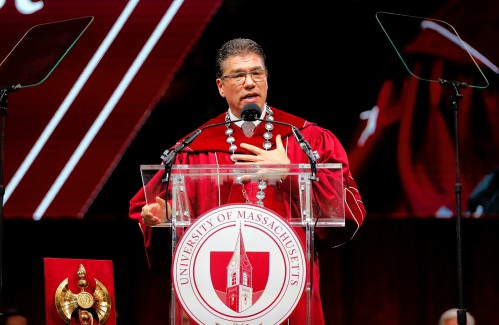
Reyes takes helm of UMass flagship amid pro-Palestinian protests
AMHERST — On a Friday morning filled with music, ceremony and speeches by state leaders to inaugurate Javier Reyes as the 31st leader of the University of Massachusetts Amherst, and the first Hispanic chancellor of the flagship campus, protesters...
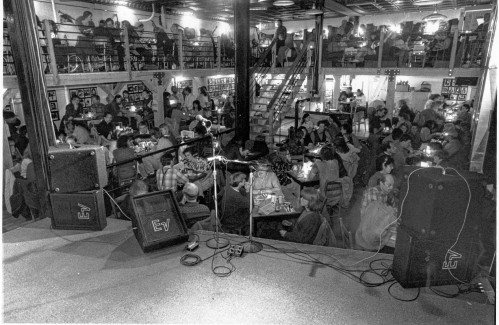
The Iron Horse rides again: The storied Northampton club will reopen at last, May 15
In late March, the fabled Iron Horse Music Hall, slated to reopen in mid May, was still a pretty raw construction site.Boards, pipes, boxes, and other materials were piled on the floors, along the walls, and on tables. Extension cords to power saws...
Most Read
 Locking up carbon for good: Easthampton inventor’s CO2 removal system turns biomass into biochar
Locking up carbon for good: Easthampton inventor’s CO2 removal system turns biomass into biochar
 Northampton man will go to trial on first-degree murder charge after plea agreement talks break down
Northampton man will go to trial on first-degree murder charge after plea agreement talks break down
 Police report details grisly crime scene in Greenfield
Police report details grisly crime scene in Greenfield
 Area property deed transfers, April 25
Area property deed transfers, April 25
 Advancing water treatment: UMass startup Elateq Inc. wins state grant to deploy new technology
Advancing water treatment: UMass startup Elateq Inc. wins state grant to deploy new technology
 Super defers Amherst middle school principal pick to successor; one finalist says decision is retaliation for lawsuit
Super defers Amherst middle school principal pick to successor; one finalist says decision is retaliation for lawsuit
Editors Picks
 A Look Back, April 27
A Look Back, April 27
 The power of poetry: U.S. Poet Laureate Ada Limón to speak at Smith College
The power of poetry: U.S. Poet Laureate Ada Limón to speak at Smith College
 The Beat Goes On: Album release shows by Barnstar! and Lisa Bastoni, a Young@Heart Chorus concert with new special guests, and more
The Beat Goes On: Album release shows by Barnstar! and Lisa Bastoni, a Young@Heart Chorus concert with new special guests, and more
Sports

High schools: Furious fourth quarter rally falls just short for South Hadley boys lacrosse
SOUTH HADLEY – The South Hadley boys lacrosse team scored five unanswered goals in the fourth quarter to get within striking distance of Agawam (5-3), but the Tigers (4-5) comeback fell short in a 10-6 Valley League home loss on Friday afternoon.Solid...
 Softball: Hampshire rallies from early deficit, slugs past Easthampton 10-4 (PHOTOS)
Softball: Hampshire rallies from early deficit, slugs past Easthampton 10-4 (PHOTOS)
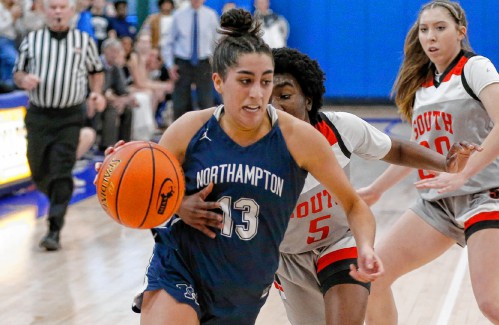 2024 Gazette Girls Basketball Player of the Year: Ava Azzaro, Northampton
2024 Gazette Girls Basketball Player of the Year: Ava Azzaro, Northampton
 Baseball: Chace Earle shuts down Easthampton in Hopkins Academy’s 13-0 win
Baseball: Chace Earle shuts down Easthampton in Hopkins Academy’s 13-0 win
Opinion

Charlene Galenski: Blake Gilmore, a strong candidate for Deerfield’s Selectboard
On May 6, Deerfield will have its annual election for local positions. Blake Gilmore is running as a candidate for Selectboard. Deerfield is facing some financially challenging times. Over the past few years, the town has voted to finance several...
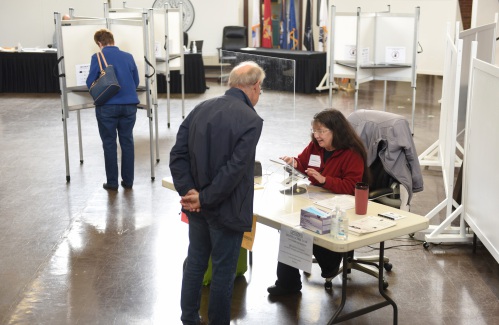 Annette Pfannebecker: Vote yes for Shores Ness and for Deerfield
Annette Pfannebecker: Vote yes for Shores Ness and for Deerfield
 Columnist Susan Wozniak: Rising costs long ago swamped hippie ideal
Columnist Susan Wozniak: Rising costs long ago swamped hippie ideal
 Guest columnist Rudy Perkins: Dangerous resolution pins ‘aggression’ on Iran
Guest columnist Rudy Perkins: Dangerous resolution pins ‘aggression’ on Iran
 David Kirk: Northampton schools spending beyond means
David Kirk: Northampton schools spending beyond means

Business

Locking up carbon for good: Easthampton inventor’s CO2 removal system turns biomass into biochar
HOLYOKE — Like many people, Michael Garjian believes global warming is a pressing issue of our times.Unlike most, he’s putting his ideas for reducing carbon dioxide in the atmosphere into practice — and at the same time bidding for a share of the $100...
 Area property deed transfers, April 25
Area property deed transfers, April 25
 Primo Restaurant & Pizzeria in South Deerfield under new ownership
Primo Restaurant & Pizzeria in South Deerfield under new ownership
Arts & Life

Upon Nancy’s Floor: 33 Hawley event celebrates iconic dancers, history, and a new dance floor
Among the many features that are part of 33 Hawley, the Northampton Community Arts Trust building that was finally completed in early January following 10 years of construction, there’s probably nothing more important to dancers than the floor of the...
Obituaries
 Eli Knapp Abrams
Eli Knapp Abrams
Florence, MA - Eli Knapp Abrams, of Florence Massachusetts, passed away suddenly on Monday, April 22nd, 2024 in Goshen, MA. Eli was born in Beverly, MA on March 19th, 2003. He is the cherished son of Jennifer and Maury Abrams, and belov... remainder of obit for Eli Knapp Abrams
 Patricia Taylor
Patricia Taylor
Plymouth, MA - Pat, wife, mother, and grandmother, passed away on Saturday, April 20th after a long battle with cancer. Daughter of Valerian and Regina Latka, she leaves behind William, her husband of 54 years, her son Kevin and his par... remainder of obit for Patricia Taylor
 Audrey McKemmie
Audrey McKemmie
Greenfield, MA - Audrey A. McKemmie of Greenfield and formerly of Amherst passed away on April 23, 2024, after a period of declining health. Born in Greenfield, December 12, 1930, she was the only child of John and Susie (Hayden) Kolink... remainder of obit for Audrey McKemmie
 Donald E. Hooton
Donald E. Hooton
South Hadley, MA - South Hadley Donald E. Hooton, 91, passed away peacefully on Sunday, April 21 st , 2024, surrounded by his loving family. He was born in Holyoke to the late Eva (Utley) and Leonard Hooton. Donald moved to South ... remainder of obit for Donald E. Hooton

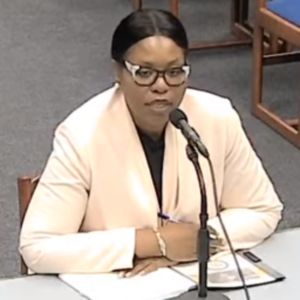 Final pick for Amherst regional superintendent, from Virgin Islands, aims to ‘lead with love’
Final pick for Amherst regional superintendent, from Virgin Islands, aims to ‘lead with love’
 La Veracruzana, PHO-keh Bowl launch returnable container program
La Veracruzana, PHO-keh Bowl launch returnable container program
 Amherst officials eye 2026 for 6th Grade Academy’s launch
Amherst officials eye 2026 for 6th Grade Academy’s launch
 Amherst Regional School Committee proposes new budget that lowers assessments for towns
Amherst Regional School Committee proposes new budget that lowers assessments for towns
 Is Steam Mill Road in Deerfield a public way? Land Court to decide as trial begins
Is Steam Mill Road in Deerfield a public way? Land Court to decide as trial begins
 Around Amherst: Town cleanup day being organized for Saturday
Around Amherst: Town cleanup day being organized for Saturday
 High schools: Ava Shea, Belchertown girls tennis get past South Hadley (PHOTOS)
High schools: Ava Shea, Belchertown girls tennis get past South Hadley (PHOTOS) Advancing water treatment: UMass startup Elateq Inc. wins state grant to deploy new technology
Advancing water treatment: UMass startup Elateq Inc. wins state grant to deploy new technology New Realtor Association CEO looks to work collaboratively to maximize housing options
New Realtor Association CEO looks to work collaboratively to maximize housing options Embracing both new and old: Da Camera Singers celebrates 50 years in the best way they know how
Embracing both new and old: Da Camera Singers celebrates 50 years in the best way they know how Time to celebrate kids and books: Mass Kids Lit Fest offers a wealth of programs in Valley during Children’s Book Week
Time to celebrate kids and books: Mass Kids Lit Fest offers a wealth of programs in Valley during Children’s Book Week Arts Briefs: A themed exhibit in Northampton, new opportunities for artists in Easthampton, and more
Arts Briefs: A themed exhibit in Northampton, new opportunities for artists in Easthampton, and more Speaking of Nature: ‘Those sound like chickens’: Wood frogs and spring peepers are back — and loud as ever
Speaking of Nature: ‘Those sound like chickens’: Wood frogs and spring peepers are back — and loud as ever
